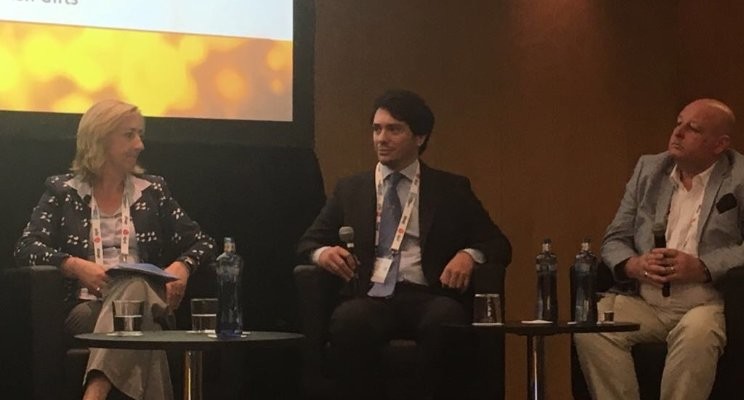A transcript of my answers to the Q&A made during the workshop “ Proposal For New VAT Rules For Cross-Border E-Commerce: How Could It Benefit Online Shops”? at the 2017 Global Summit in Barcelona.
Alan: is there anything missing in the Commission’s proposal that you would suggest to include?
The VAT reform proposal unveiled last December outlines a framework of measures in the e-commerce sector. It brushes a large painting. If the reform is approved, many EU and national regulations will still be needed to implement it. Thus, it is probably still early to assess whether the proposal is “complete”.
In the position paper published by E-commerce Europe last week, some observations and concerns have been raised. Picking up one of the remarks: the current wording of the relevant VAT directive proposal is slightly equivocal in whether the MOSS will be extended to all business-to-consumer services. There is clear reference to the extension of the MOSS to services taxed where the consumer belongs but not to services taxed under different criteria. If the reform is restricted only to the former services, then supplies of transportation services, booking of events and other services would be left out of the reform (being subject to other territorial criteria of VAT taxation).
The Commission also proposed to remove the exemption in place for third countries for the importation of small packages into the EU. What is your opinion about this measure?
The removal of the small consignment exemption is a very ambitious measure. Many non-EU countries have a threshold under which parcels are not subject to import duties (the US, China, Russia, etc.). The reason is to male customs clearance procedures cost effective. This is probably the least detailed part of the VAT directive proposal. It makes reference to the involvement of other stakeholder in the process of assessing and collecting VAT or customs duties. It seems that more and more countries, including the UK, are thinking of a collection of VAT and duties at the point of sale, under a VAT-payment split system.
The €10.000 threshold proposed by the Commission, below which online merchants can declare and pay VAT in their own country, has received some critics from the business side. In particular, the overall impression is that 10.000 € is too low. What is your opinion about the level proposed?
The threshold is quite low but considering that access and use of the MOSS has proved not too uneasy (considering the experience of digital services) and that some EU states were against inserting a threshold, at all, the 10,000 Euro threshold should not be a deal breaker.
Should there be a specific role for e-commerce platforms in relation to VAT collection?
It is clear that marketplaces are important and powerful e-commerce operators. They have information, they interact with merchants. However, their role in an on-time, transaction based VAT system must be clear. There must be certainty.
The position paper of E-Commerce Europe on the proposed EU VAT reform on e-commerce drafted with Taxmen can be found here:
goo.gl/RvFu8s

